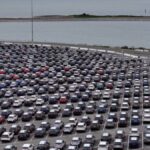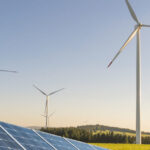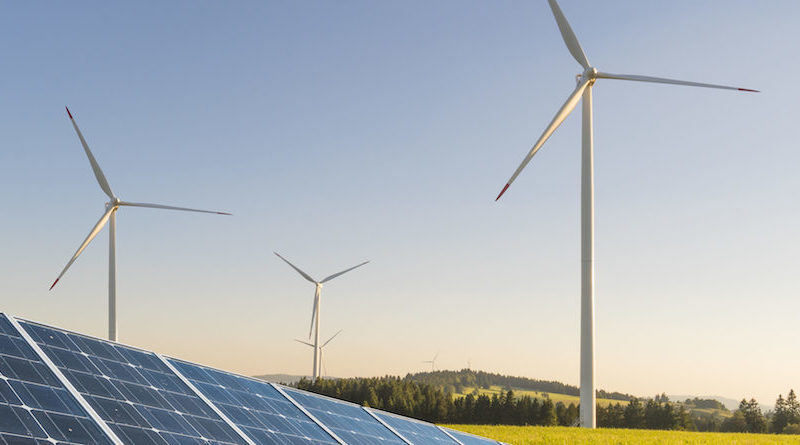As the charge towards net zero carbon emissions by 2050 ramps up, some countries in Europe are faring better than others. This country appears to be spearheading the mobilization of the EU in pursuit of its net zero target.
What do politicians and climate scientists mean when they say “net zero”?
We have all no doubt heard the call to action in pursuit of a net zero future. These calls have become so ubiquitous that their meaning has become slightly obscured.
It might be time we once again ask the question: what does “net zero” mean and why is it important?
It is widely accepted that in order to stave off climate change, we need to reach a target of net zero carbon emissions some time soon. For the EU, that deadline is 2050.
At this point, all countries in the EU are expected to produce a “net” carbon effect of zero. In other words, any carbon dioxide released by industry must be reabsorbed or removed from the atmosphere in some way so that the resultant carbon emissions amount to zero. Climate change is already changing our world (like how it is altering our very ideas about the seasons) and a net zero target is seen as a way to curb these dramatic changes.
In a world run by bureaucrats, is a net zero future even possible?
A good deal of policy proposed to counteract the devastating effects of climate change have been undermined by unnecessarily arduous bureaucratic processes. Germany, understanding that the urgency of the climate crisis requires equally urgent action, has undertaken active efforts to strip the renewable industry of its bureaucratic holds in order to make renewables more widely accessible.
In 2022, the German government began to strip back some legislation that curtails the installation of renewables and offer incentives to citizens who install renewables in their private residences.
- Residents who wish to install solar panels on their balconies no longer have to register with the network operator for installation.
- The inverter power limit has been raised form 600 watts to 800 watts (AC).
- The power limit of connected modules is now 2000 watts.
- Installing balcony solar systems no longer requires a permit as they are no longer classed as construction products.
- These balcony plug-in solar panels can be subsidised.
- Plug-in solar devices are not subject to sales tax.
How can we be sure these reforms will actually work?
The answer is simple. They already are!
In the beginning of 2024, roughly 40,000 solar devices were in use in Germany. Over the course of 2024, wind and solar energy produced more electricity than fossil fuels for the first time ever.
Germany reported an 85% increase in photovoltaic production in 2023 when compared to previous years. Recent statistics place the amount of solar energy produced on balconies in Germany at 200 MW.
Germany is not only meeting its emission goals, the country is exceeding them. In 2023, Germany produced 10 GW per month in photovoltaic production alone. That is 1 GW per month up from their initial target of 9 GW per month.
The ease with which these balcony solar units can be installed, coupled with the lack of bureaucratic hurdles encountered when installing them, has made balcony photovoltaic production both affordable and simple. This has drawn many Germans away from energy produced through the burning of fossil fuels and towards this renewable power source.
What does the future of German energy look like?
While the production of energy using wind has lagged behind that of solar, the removal of similar bureaucratic hurdles in wind power are expected to increase its production capabilities. This lag can largely be attributed to the greater infrastructure demands of wind energy.
All in all, the future of energy in Germany looks bright – pun intended. The shift in Germany’s means of producing power from non-renewables like coal, to renewables like balcony photovoltaic systems is promising.
By removing unnecessary hurdles and prioritising a net zero future, Germany has definitively shown that governments, when so inclined, are able to bolster public buy-in to renewables and shift their economies to ones which run on renewable energy.
As climate change threatens humanity, countries like Germany are fighting back by coming up with innovative solutions (like this incredibly powerful solar fence) in the pursuit of a net zero 2050.















